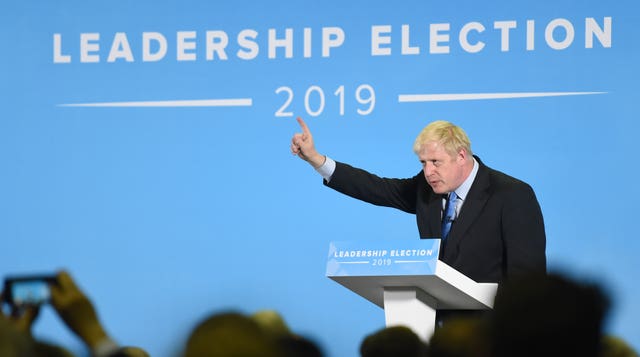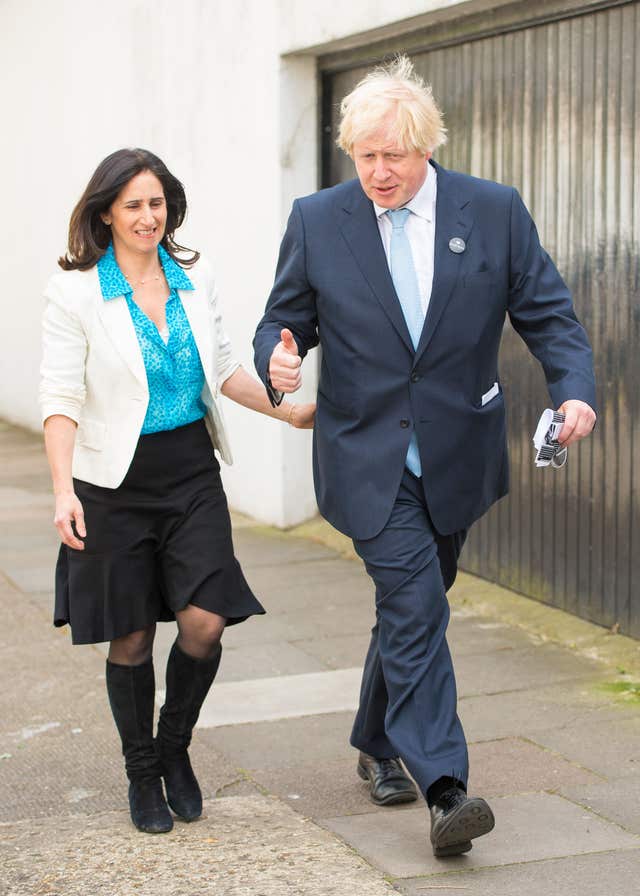Tory leadership favourite Boris Johnson’s turbulent career
The former foreign secretary and London mayor has Number 10 in his sights.

Controversial, colourful and chaotic, Boris Johnson believes he is the man to give the UK back its “mojo” through an optimistic attitude and a “do or die” commitment to Brexit.
The former foreign secretary is the favourite to win the Tory leadership race and his enduring popularity among the party faithful means victory for Jeremy Hunt would be a major upset.
He has Number 10 in his sights despite a litany of gaffes and scandals that would have ended the careers of other politicians, but the seemingly Teflon-coated Mr Johnson has been able to survive and prosper despite – or possibly due to – his capacity for causing uproar.
A row with girlfriend Carrie Symonds that saw police called to their home in the early stages of the leadership race was a glimpse into the complicated private life about which Mr Johnson tries desperately to avoid answering questions.
But it is his public actions – whether penning provocative columns or his record in the Foreign Office – which have led to most scrutiny as Tory Party members decided who to back as the next prime minister while the rest of the country watched on.
He has been repeatedly criticised for using racially-charged or offensive language, including describing the Queen being greeted in Commonwealth countries by “flag-waving piccaninnies” and then-prime minister Tony Blair being met by “tribal warriors” with “watermelon smiles” while on a trip to the Congo.
In a 2018 Daily Telegraph column he described veiled Muslim women as “looking like letter boxes”.

During the leadership contest, Mr Johnson said: “Insofar as my words have given offence over the last 20 or 30 years when I have been a journalist and people have taken those words out of my articles and escalated them, of course I am sorry for the offence they have caused.”
He acknowledged that “occasionally some plaster comes off the ceiling as a result of a phrase I may have used” but insisted politicians should be able to speak frankly.
Mr Johnson has also faced repeated questions about his blunder as foreign secretary in the case of jailed British-Iranian Nazanin Zaghari-Ratcliffe, who he mistakenly said had been training journalists – comments which were seized on by the authorities in Tehran.
He has insisted that his comments made no difference – something disputed by Mrs Zaghari-Ratcliffe’s husband, Richard Ratclffe – and said the blame for her continued incarceration should be on the Iranian regime rather than him.
His perceived lack of support for the UK’s ambassador to the US, Sir Kim Darroch, over the leak of critical dispatches about President Donald Trump has also concerned critics on the Tory benches and in Whitehall.
Although he has been all too willing to attract publicity for his political advantage, Mr Johnson, 55, has been reticent when it comes to details of his private life.
He met his first wife, Allegra Mostyn-Owen, while they were students at Oxford, and they wed in 1987, but the marriage was annulled in 1993.

His second marriage, to Marina Wheeler, ended last year after 25 years together, during which they had four children.
The marriage was turbulent – in 2004 he was sacked from the Tory frontbench over a reported affair with journalist Petronella Wyatt and the Appeal Court ruled in 2013 that the public had a right to know that he had fathered a daughter during an adulterous liaison while mayor of London in 2009.
Mr Johnson’s latest relationship with 31-year-old Ms Symonds has been the subject of intense speculation about what her role would be in Downing Street.
Questions about his character were often raised during the leadership race, with a Tory member at a hustings event in Perth asking him whether a good prime minister needed to be “a loyal husband and father”.
Mr Johnson said: “I have been asked all sorts of questions in the last 20 or 30 years, and I just don’t comment on that stuff.”
He was warned that his refusal to answer questions on the issue would mean that voters “come to their own conclusion and it may not be a favourable one”.
Mr Johnson said: “Then I’m going to have to live with that.”
Despite the reservations some Tory members have, Mr Johnson remains a darling of the Conservative faithful, as shown during his appearances at party conferences where activists will queue for a chance to hear him speak.
His status as favourite in the leadership race was assured after he secured the votes of more than half of Tory MPs in order to make it through the parliamentary stage of the contest.
Mr Johnson’s ability to reach out to voters who traditionally shun the Conservatives was demonstrated by his election as mayor of London in 2008 and retention of the powerful position four years later.
The Tory MP’s decision to back Brexit in the referendum was a significant boost for the campaign, giving Vote Leave the high-profile frontman it needed.
After taking office as Prime Minister, Theresa May made him her foreign secretary – although he resigned in July 2018 over the direction she was taking on Brexit.
An old Etonian, Mr Johnson was a member of the notorious elite dining society the Bullingdon Club while at Oxford.
Although he has his sights set on Number 10, as a child he held even loftier ambitions.
According to his sister Rachel, the young Mr Johnson’s goal was to be “world king”.
For now, Downing Street may have to suffice.





